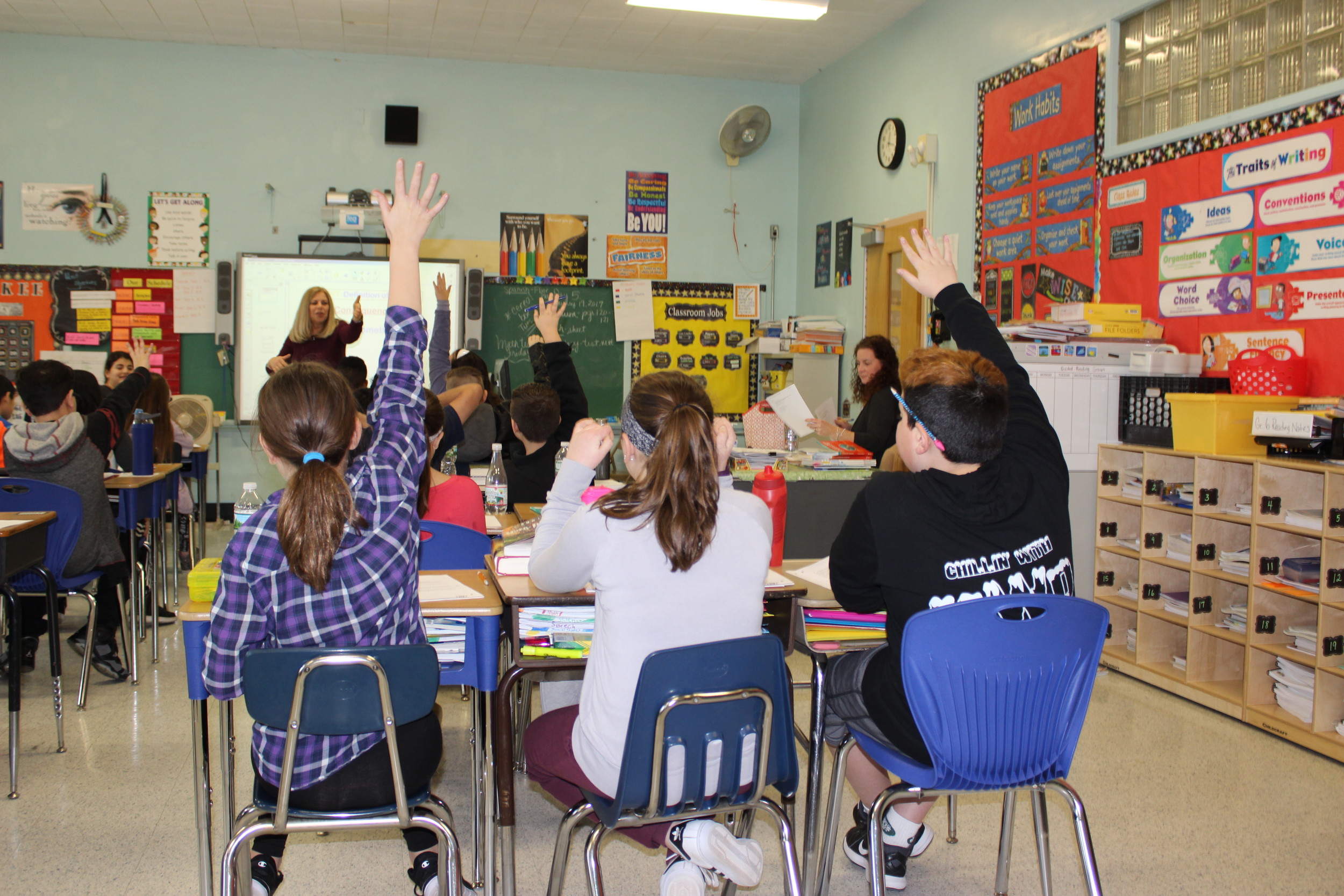Making smart decisions at Dinkelmeyer
Students watched carefully as their peers acted out decision-making scenarios in front of Kathleen Kee’s 6th grade class at Dinkelmeyer Elementary School. The skits varied, but focused on discerning whether it was a smart idea to start smoking cigarettes.
Prevention Specialist and North Shore University Hospital Nurse Laurie Weintraub ran the exercise as part of her Toward No Tobacco program, a 10-lesson course that teaches students about the dangers of tobacco use. This course is part of the North Bellmore Prevention Program, a New York state-funded initiative to teach children in its schools about dangerous behaviors such as substance use, violence and addiction.
The North Bellmore Prevention Program has been running in the district for the past 25 years and is funded by the Office of Alcoholism and Substance Abuse Services and the Nassau County Department of Mental Health, Chemical Dependency and Developmental Disabilities Services with subsidy from the district. It is used as an example for state schools to look to when they request funding for similar programs, according to Social Worker and Prevention Program Director JoAnn Signorelli. “Our goal is to teach children about the consequences of risky behaviors down the line,” she said.
The curriculum starts with two available classes in Kindergarten including Too Good for Violence and continues through 6th grade with more classes available. These include Weintraub’s TNT program, Conflict Resolution Training, HIV/AIDS Education and Teaching Students to be Peacemakers. The North Bellmore Prevention Program also offers the extracurricular club, Students Against Destructive Decisions. Additional programs are offered upon teacher request, including Banana Splits, for children of divorced parents, Child Safety, teaching precautions when it comes to interactions with strangers, and Internet Safety Classroom Education. Parent education programs include the Merrick-Bellmore Community Coalition, which recently organized a heroin task force as a means of tackling Long Island’s opioid epidemic.
Weintraub’s TNT Program consists of 10 lessons, starting with an introduction to tobacco products before instructing students about the stages of addiction, self-esteem and peer pressure, tobacco advertising, and how students could help promote a smoke-free society. At the program’s conclusion, students write letters asking pharmacies such as Walgreen’s and Rite Aide to consider ending their sale of tobacco products. Weintraub then mails the letters to the headquarters of these companies. She added this pursuit to her program two years ago when CVS Pharmacy stopped selling cigarettes. While no apparent change has come of it, she hopes the messages from these children will resonate.
Program Director JoAnn Signorelli is also President of the Association of School Prevention, Intervention, Resource and Educational Professionals, a non-profit organization aimed at sponsoring commuity and school-based programs in substance use prevention and mental health awareness. It is comprised of social workers, psychologists, counselors, health educators and nurses.
For more information visit www.northbellmoreschools.org/domain/135.

 49.0°,
Mostly Cloudy
49.0°,
Mostly Cloudy 




